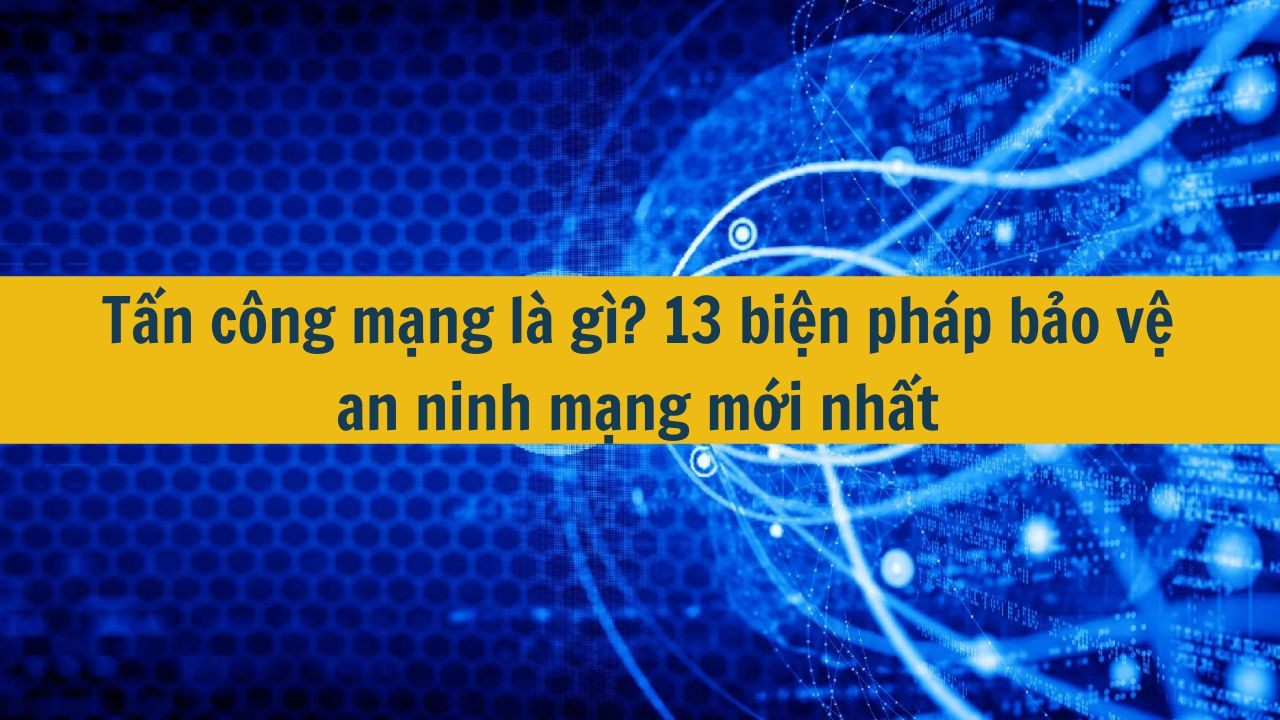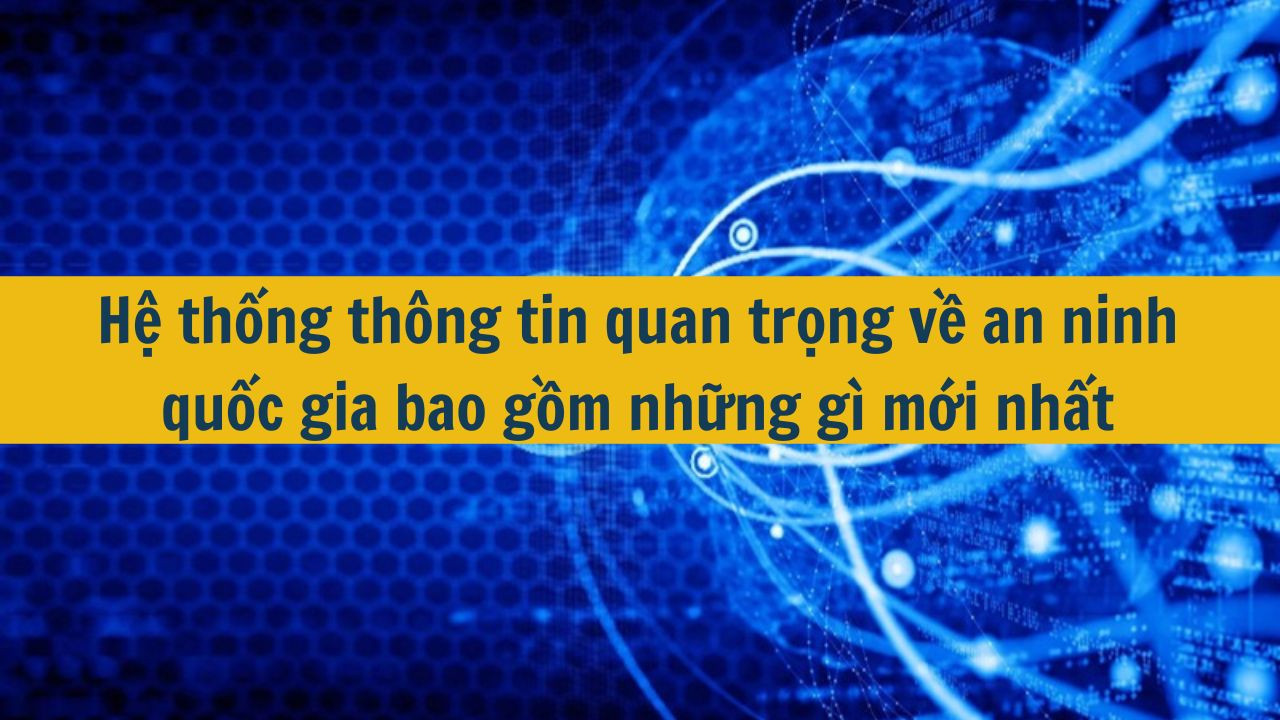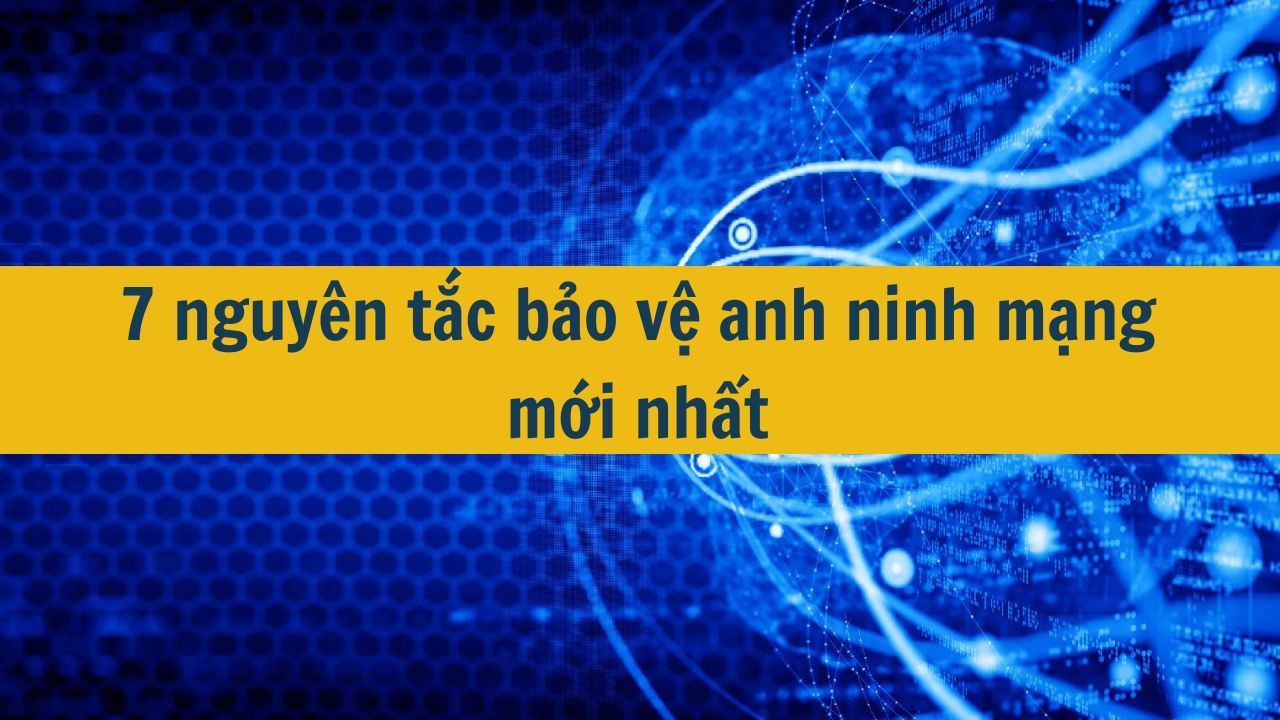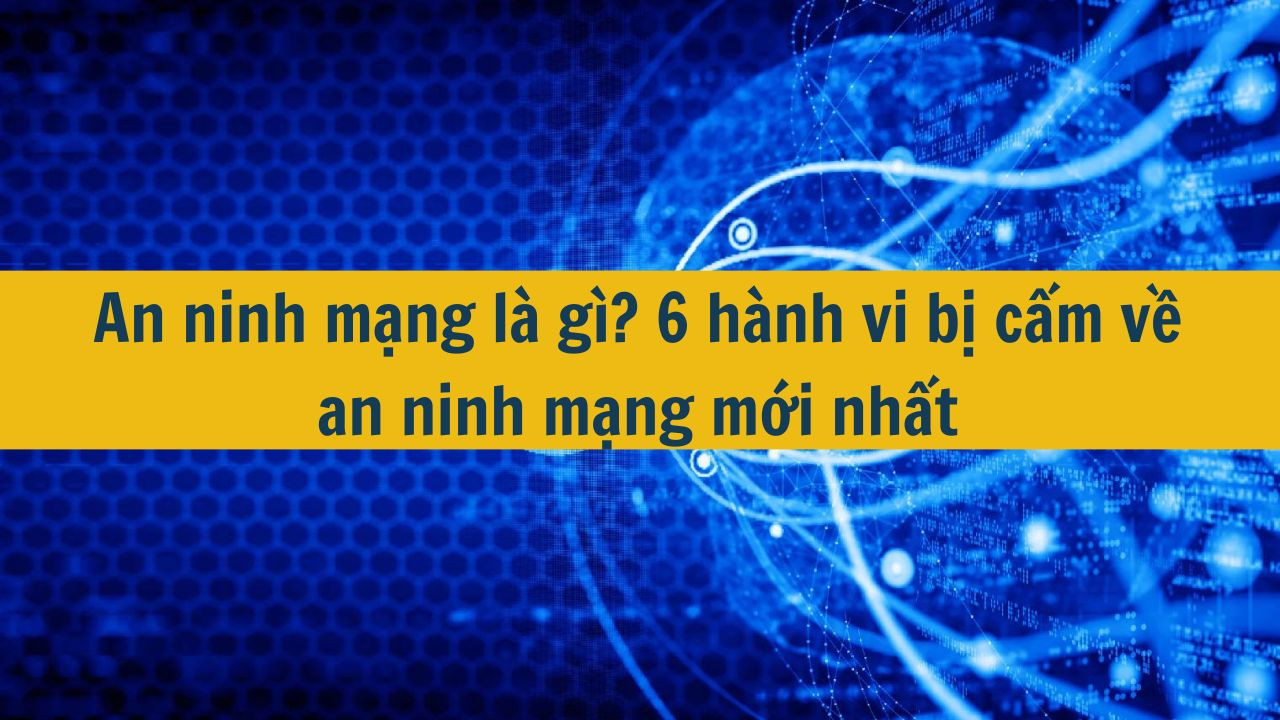 Tìm kiếm
Tìm kiếm
Chương I Luật An ninh mạng 2018: Những quy định chung
| Số hiệu: | 24/2018/QH14 | Loại văn bản: | Luật |
| Nơi ban hành: | Quốc hội | Người ký: | Nguyễn Thị Kim Ngân |
| Ngày ban hành: | 12/06/2018 | Ngày hiệu lực: | 01/01/2019 |
| Ngày công báo: | 14/07/2018 | Số công báo: | Từ số 775 đến số 776 |
| Lĩnh vực: | Công nghệ thông tin, Văn hóa - Xã hội | Tình trạng: | Còn hiệu lực |
TÓM TẮT VĂN BẢN
Văn bản tiếng việt
Văn bản tiếng anh
Luật này quy định về hoạt động bảo vệ an ninh quốc gia và bảo đảm trật tự, an toàn xã hội trên không gian mạng; trách nhiệm của cơ quan, tổ chức, cá nhân có liên quan.
Trong Luật này, các từ ngữ dưới đây được hiểu như sau:
1. An ninh mạng là sự bảo đảm hoạt động trên không gian mạng không gây phương hại đến an ninh quốc gia, trật tự, an toàn xã hội, quyền và lợi ích hợp pháp của cơ quan, tổ chức, cá nhân.
2. Bảo vệ an ninh mạng là phòng ngừa, phát hiện, ngăn chặn, xử lý hành vi xâm phạm an ninh mạng.
3. Không gian mạng là mạng lưới kết nối của cơ sở hạ tầng công nghệ thông tin, bao gồm mạng viễn thông, mạng Internet, mạng máy tính, hệ thống thông tin, hệ thống xử lý và điều khiển thông tin, cơ sở dữ liệu; là nơi con người thực hiện các hành vi xã hội không bị giới hạn bởi không gian và thời gian.
4. Không gian mạng quốc gia là không gian mạng do Chính phủ xác lập, quản lý và kiểm soát.
5. Cơ sở hạ tầng không gian mạng quốc gia là hệ thống cơ sở vật chất, kỹ thuật để tạo lập, truyền đưa, thu thập, xử lý, lưu trữ và trao đổi thông tin trên không gian mạng quốc gia, bao gồm:
a) Hệ thống truyền dẫn bao gồm hệ thống truyền dẫn quốc gia, hệ thống truyền dẫn kết nối quốc tế, hệ thống vệ tinh, hệ thống truyền dẫn của doanh nghiệp cung cấp dịch vụ trên mạng viễn thông, mạng Internet, các dịch vụ gia tăng trên không gian mạng;
b) Hệ thống các dịch vụ lõi bao gồm hệ thống phân luồng và điều hướng thông tin quốc gia, hệ thống phân giải tên miền quốc gia (DNS), hệ thống chứng thực quốc gia (PKI/CA) và hệ thống cung cấp dịch vụ kết nối, truy cập Internet của doanh nghiệp cung cấp dịch vụ trên mạng viễn thông, mạng Internet, các dịch vụ gia tăng trên không gian mạng;
c) Dịch vụ, ứng dụng công nghệ thông tin bao gồm dịch vụ trực tuyến; ứng dụng công nghệ thông tin có kết nối mạng phục vụ quản lý, điều hành của cơ quan, tổ chức, tập đoàn kinh tế, tài chính quan trọng; cơ sở dữ liệu quốc gia.
Dịch vụ trực tuyến bao gồm chính phủ điện tử, thương mại điện tử, trang thông tin điện tử, diễn đàn trực tuyến, mạng xã hội, blog;
d) Cơ sở hạ tầng công nghệ thông tin của đô thị thông minh, Internet vạn vật, hệ thống phức hợp thực - ảo, điện toán đám mây, hệ thống dữ liệu lớn, hệ thống dữ liệu nhanh và hệ thống trí tuệ nhân tạo.
6. Cổng kết nối mạng quốc tế là nơi diễn ra hoạt động chuyển nhận tín hiệu mạng qua lại giữa Việt Nam và các quốc gia, vùng lãnh thổ khác.
7. Tội phạm mạng là hành vi sử dụng không gian mạng, công nghệ thông tin hoặc phương tiện điện tử để thực hiện tội phạm được quy định tại Bộ luật Hình sự.
8. Tấn công mạng là hành vi sử dụng không gian mạng, công nghệ thông tin hoặc phương tiện điện tử để phá hoại, gây gián đoạn hoạt động của mạng viễn thông, mạng Internet, mạng máy tính, hệ thống thông tin, hệ thống xử lý và điều khiển thông tin, cơ sở dữ liệu, phương tiện điện tử.
9. Khủng bố mạng là việc sử dụng không gian mạng, công nghệ thông tin hoặc phương tiện điện tử để thực hiện hành vi khủng bố, tài trợ khủng bố.
10. Gián điệp mạng là hành vi cố ý vượt qua cảnh báo, mã truy cập, mật mã, tường lửa, sử dụng quyền quản trị của người khác hoặc bằng phương thức khác để chiếm đoạt, thu thập trái phép thông tin, tài nguyên thông tin trên mạng viễn thông, mạng Internet, mạng máy tính, hệ thống thông tin, hệ thống xử lý và điều khiển thông tin, cơ sở dữ liệu, phương tiện điện tử của cơ quan, tổ chức, cá nhân.
11. Tài khoản số là thông tin dùng để chứng thực, xác thực, phân quyền sử dụng các ứng dụng, dịch vụ trên không gian mạng.
12. Nguy cơ đe dọa an ninh mạng là tình trạng không gian mạng xuất hiện dấu hiệu đe dọa xâm phạm an ninh quốc gia, gây tổn hại nghiêm trọng trật tự, an toàn xã hội, quyền và lợi ích hợp pháp của cơ quan, tổ chức, cá nhân.
13. Sự cố an ninh mạng là sự việc bất ngờ xảy ra trên không gian mạng xâm phạm an ninh quốc gia, trật tự, an toàn xã hội, quyền và lợi ích hợp pháp của cơ quan, tổ chức, cá nhân.
14. Tình huống nguy hiểm về an ninh mạng là sự việc xảy ra trên không gian mạng khi có hành vi xâm phạm nghiêm trọng an ninh quốc gia, gây tổn hại đặc biệt nghiêm trọng trật tự, an toàn xã hội, quyền và lợi ích hợp pháp của cơ quan, tổ chức, cá nhân.
1. Ưu tiên bảo vệ an ninh mạng trong quốc phòng, an ninh, phát triển kinh tế - xã hội, khoa học, công nghệ và đối ngoại.
2. Xây dựng không gian mạng lành mạnh, không gây phương hại đến an ninh quốc gia, trật tự, an toàn xã hội, quyền và lợi ích hợp pháp của cơ quan, tổ chức, cá nhân.
3. Ưu tiên nguồn lực xây dựng lực lượng chuyên trách bảo vệ an ninh mạng; nâng cao năng lực cho lực lượng bảo vệ an ninh mạng và tổ chức, cá nhân tham gia bảo vệ an ninh mạng; ưu tiên đầu tư cho nghiên cứu, phát triển khoa học, công nghệ để bảo vệ an ninh mạng.
4. Khuyến khích, tạo điều kiện để tổ chức, cá nhân tham gia bảo vệ an ninh mạng, xử lý các nguy cơ đe dọa an ninh mạng; nghiên cứu, phát triển công nghệ, sản phẩm, dịch vụ, ứng dụng nhằm bảo vệ an ninh mạng; phối hợp với cơ quan chức năng trong bảo vệ an ninh mạng.
5. Tăng cường hợp tác quốc tế về an ninh mạng.
1. Tuân thủ Hiến pháp và pháp luật; bảo đảm lợi ích của Nhà nước, quyền và lợi ích hợp pháp của cơ quan, tổ chức, cá nhân.
2. Đặt dưới sự lãnh đạo của Đảng Cộng sản Việt Nam, sự quản lý thống nhất của Nhà nước; huy động sức mạnh tổng hợp của hệ thống chính trị và toàn dân tộc; phát huy vai trò nòng cốt của lực lượng chuyên trách bảo vệ an ninh mạng.
3. Kết hợp chặt chẽ giữa nhiệm vụ bảo vệ an ninh mạng, bảo vệ hệ thống thông tin quan trọng về an ninh quốc gia với nhiệm vụ phát triển kinh tế - xã hội, bảo đảm quyền con người, quyền công dân, tạo điều kiện cho cơ quan, tổ chức, cá nhân hoạt động trên không gian mạng.
4. Chủ động phòng ngừa, phát hiện, ngăn chặn, đấu tranh, làm thất bại mọi hoạt động sử dụng không gian mạng xâm phạm an ninh quốc gia, trật tự, an toàn xã hội, quyền và lợi ích hợp pháp của cơ quan, tổ chức, cá nhân; sẵn sàng ngăn chặn các nguy cơ đe dọa an ninh mạng.
5. Triển khai hoạt động bảo vệ an ninh mạng đối với cơ sở hạ tầng không gian mạng quốc gia; áp dụng các biện pháp bảo vệ hệ thống thông tin quan trọng về an ninh quốc gia.
6. Hệ thống thông tin quan trọng về an ninh quốc gia được thẩm định, chứng nhận đủ điều kiện về an ninh mạng trước khi đưa vào vận hành, sử dụng; thường xuyên kiểm tra, giám sát về an ninh mạng trong quá trình sử dụng và kịp thời ứng phó, khắc phục sự cố an ninh mạng.
7. Mọi hành vi vi phạm pháp luật về an ninh mạng phải được xử lý kịp thời, nghiêm minh.
1. Biện pháp bảo vệ an ninh mạng bao gồm:
a) Thẩm định an ninh mạng;
b) Đánh giá điều kiện an ninh mạng;
c) Kiểm tra an ninh mạng;
d) Giám sát an ninh mạng;
đ) Ứng phó, khắc phục sự cố an ninh mạng;
e) Đấu tranh bảo vệ an ninh mạng;
g) Sử dụng mật mã để bảo vệ thông tin mạng;
h) Ngăn chặn, yêu cầu tạm ngừng, ngừng cung cấp thông tin mạng; đình chỉ, tạm đình chỉ các hoạt động thiết lập, cung cấp và sử dụng mạng viễn thông, mạng Internet, sản xuất và sử dụng thiết bị phát, thu phát sóng vô tuyến theo quy định của pháp luật;
i) Yêu cầu xóa bỏ, truy cập xóa bỏ thông tin trái pháp luật hoặc thông tin sai sự thật trên không gian mạng xâm phạm an ninh quốc gia, trật tự, an toàn xã hội, quyền và lợi ích hợp pháp của cơ quan, tổ chức, cá nhân;
k) Thu thập dữ liệu điện tử liên quan đến hoạt động xâm phạm an ninh quốc gia, trật tự, an toàn xã hội, quyền và lợi ích hợp pháp của cơ quan, tổ chức, cá nhân trên không gian mạng;
l) Phong tỏa, hạn chế hoạt động của hệ thống thông tin; đình chỉ, tạm đình chỉ hoặc yêu cầu ngừng hoạt động của hệ thống thông tin, thu hồi tên miền theo quy định của pháp luật;
m) Khởi tố, điều tra, truy tố, xét xử theo quy định của Bộ luật Tố tụng hình sự;
n) Biện pháp khác theo quy định của pháp luật về an ninh quốc gia, pháp luật về xử lý vi phạm hành chính.
2. Chính phủ quy định trình tự, thủ tục áp dụng biện pháp bảo vệ an ninh mạng, trừ biện pháp quy định tại điểm m và điểm n khoản 1 Điều này.
Nhà nước áp dụng các biện pháp để bảo vệ không gian mạng quốc gia; phòng ngừa, xử lý hành vi xâm phạm an ninh quốc gia, trật tự, an toàn xã hội, quyền và lợi ích hợp pháp của cơ quan, tổ chức, cá nhân trên không gian mạng.
1. Hợp tác quốc tế về an ninh mạng được thực hiện trên cơ sở tôn trọng độc lập, chủ quyền và toàn vẹn lãnh thổ, không can thiệp vào công việc nội bộ của nhau, bình đẳng và cùng có lợi.
2. Nội dung hợp tác quốc tế về an ninh mạng bao gồm:
a) Nghiên cứu, phân tích xu hướng an ninh mạng;
b) Xây dựng cơ chế, chính sách nhằm đẩy mạnh hợp tác giữa tổ chức, cá nhân Việt Nam với tổ chức, cá nhân nước ngoài, tổ chức quốc tế hoạt động về an ninh mạng;
c) Chia sẻ thông tin, kinh nghiệm; hỗ trợ đào tạo, trang thiết bị, công nghệ bảo vệ an ninh mạng;
d) Phòng, chống tội phạm mạng, hành vi xâm phạm an ninh mạng; ngăn ngừa các nguy cơ đe dọa an ninh mạng;
đ) Tư vấn, đào tạo và phát triển nguồn nhân lực an ninh mạng;
e) Tổ chức hội nghị, hội thảo và diễn đàn quốc tế về an ninh mạng;
g) Ký kết và thực hiện điều ước quốc tế, thỏa thuận quốc tế về an ninh mạng;
h) Thực hiện chương trình, dự án hợp tác quốc tế về an ninh mạng;
i) Hoạt động hợp tác quốc tế khác về an ninh mạng.
3. Bộ Công an chịu trách nhiệm trước Chính phủ chủ trì, phối hợp thực hiện hợp tác quốc tế về an ninh mạng, trừ hoạt động hợp tác quốc tế của Bộ Quốc phòng.
Bộ Quốc phòng chịu trách nhiệm trước Chính phủ thực hiện hợp tác quốc tế về an ninh mạng trong phạm vi quản lý.
Bộ Ngoại giao có trách nhiệm phối hợp với Bộ Công an, Bộ Quốc phòng trong hoạt động hợp tác quốc tế về an ninh mạng.
Trường hợp hợp tác quốc tế về an ninh mạng có liên quan đến trách nhiệm của nhiều Bộ, ngành do Chính phủ quyết định.
4. Hoạt động hợp tác quốc tế về an ninh mạng của Bộ, ngành khác, của địa phương phải có văn bản tham gia ý kiến của Bộ Công an trước khi triển khai, trừ hoạt động hợp tác quốc tế của Bộ Quốc phòng.
1. Sử dụng không gian mạng để thực hiện hành vi sau đây:
a) Hành vi quy định tại khoản 1 Điều 18 của Luật này;
b) Tổ chức, hoạt động, câu kết, xúi giục, mua chuộc, lừa gạt, lôi kéo, đào tạo, huấn luyện người chống Nhà nước Cộng hòa xã hội chủ nghĩa Việt Nam;
c) Xuyên tạc lịch sử, phủ nhận thành tựu cách mạng, phá hoại khối đại đoàn kết toàn dân tộc, xúc phạm tôn giáo, phân biệt đối xử về giới, phân biệt chủng tộc;
d) Thông tin sai sự thật gây hoang mang trong Nhân dân, gây thiệt hại cho hoạt động kinh tế - xã hội, gây khó khăn cho hoạt động của cơ quan nhà nước hoặc người thi hành công vụ, xâm phạm quyền và lợi ích hợp pháp của cơ quan, tổ chức, cá nhân khác;
đ) Hoạt động mại dâm, tệ nạn xã hội, mua bán người; đăng tải thông tin dâm ô, đồi trụy, tội ác; phá hoại thuần phong, mỹ tục của dân tộc, đạo đức xã hội, sức khỏe của cộng đồng;
e) Xúi giục, lôi kéo, kích động người khác phạm tội.
2. Thực hiện tấn công mạng, khủng bố mạng, gián điệp mạng, tội phạm mạng; gây sự cố, tấn công, xâm nhập, chiếm quyền điều khiển, làm sai lệch, gián đoạn, ngưng trệ, tê liệt hoặc phá hoại hệ thống thông tin quan trọng về an ninh quốc gia.
3. Sản xuất, đưa vào sử dụng công cụ, phương tiện, phần mềm hoặc có hành vi cản trở, gây rối loạn hoạt động của mạng viễn thông, mạng Internet, mạng máy tính, hệ thống thông tin, hệ thống xử lý và điều khiển thông tin, phương tiện điện tử; phát tán chương trình tin học gây hại cho hoạt động của mạng viễn thông, mạng Internet, mạng máy tính, hệ thống thông tin, hệ thống xử lý và điều khiển thông tin, phương tiện điện tử; xâm nhập trái phép vào mạng viễn thông, mạng máy tính, hệ thống thông tin, hệ thống xử lý và điều khiển thông tin, cơ sở dữ liệu, phương tiện điện tử của người khác.
4. Chống lại hoặc cản trở hoạt động của lực lượng bảo vệ an ninh mạng; tấn công, vô hiệu hóa trái pháp luật làm mất tác dụng biện pháp bảo vệ an ninh mạng.
5. Lợi dụng hoặc lạm dụng hoạt động bảo vệ an ninh mạng để xâm phạm chủ quyền, lợi ích, an ninh quốc gia, trật tự, an toàn xã hội, quyền và lợi ích hợp pháp của cơ quan, tổ chức, cá nhân hoặc để trục lợi.
6. Hành vi khác vi phạm quy định của Luật này.
Người nào có hành vi vi phạm quy định của Luật này thì tùy theo tính chất, mức độ vi phạm mà bị xử lý kỷ luật, xử lý vi phạm hành chính hoặc bị truy cứu trách nhiệm hình sự, nếu gây thiệt hại thì phải bồi thường theo quy định của pháp luật.
GENERAL PROVISIONS
Article 1. Scope
This Law provides for protection of national security and public order in cyberspace; responsibility of relevant organizations and individuals.
Article 2. Definitions
For the purpose of this document, the terms below are construed as follows:
1. “cybersecurity” means assurance that activities in cyberspace do not harm national security, public order, the lawful rights and interests of any organization or individual.
2. “cybersecurity protection” includes prevention, discovery, and actions against violations of cybersecurity.
3. “cyberspace” means a network of information technology (IT) infrastructure which includes telecommunications network, the Internet, computer network, communication systems, information processing and control systems, databases; cyberspace is where people’s activities are not limited by space and time.
4. “national cyberspace” means a cyberspace established, managed and controlled by the Government.
5. “national cyberspace infrastructure” means a system of infrastructure serving creation, transmission, collection, processing, storage and exchange of in the national cyberspace, including:
a) Transmission system, which includes the national transmission system, international transmission system, satellite system, transmission systems of telecommunications service providers (TSP), Internet service providers (ISP) and providers of value-added services in cyberspace (VAS);
b) Core service systems, including national information channeling and routing system, domain name system (DNS), public key infrastructure/certificate authority (PKI/CA) and Internet connection services by TSPs, ISPs and VAS providers;
c) Services and IT applications including online services, interconnected IT applications serving administration by major business and finance organizations; national database.
Online services including electronic government, electronic commerce, websites, online forums, social networks and blogs;
d) IT infrastructure of smart cities, the Internet of things (IoT), mixed reality systems, cloud computing, big data, rapid data and artificial intelligence.
6. “international internet gateway” means the place through which network data is transmitted between Vietnam and other countries.
7. “cybercrime" means a crime that involves the use of cyberspace, information technology or electronic devices as defined in Criminal Code.
8. “cyberattack” means the use of cyberspace, information technology or electronic devices to sabotage or interrupt the telecommunications network, the Internet, computer network, communication systems, information processing and control systems, databases or electronic devices.
9. “cyberterrorism" means an act of terrorism or financing of terrorism which involves the use of cyberspace, information technology or electronic devices.
10. “cyber espionage” means bypassing of warnings, firewalls, use of another person’s administration or otherwise illegally acquiring information or information resources on a telecommunications network, the Internet, computer network or information processing system of an organization or individual.
11. “digital account” means information used for verification and classification of right to use of applications and services in cyberspace.
12. “cybersecurity threat” means any threat in cyberspace to national security, public order, the lawful rights and interests of an organization or individual.
13. “cybersecurity incident” means an unexpected event in cyberspace that threatens national security, public order or the lawful rights and interests of an organization or individual.
14. “cybersecurity emergency” means an event in cyberspace that seriously violates national security, public order or the lawful rights and interests of an organization or individual.
Article 3. State policies on cybersecurity
1. Give priority to assurance of cybersecurity in national defense and security, socio-economic development, science and technology development and diplomacy
2. Develop health cyberspace without jeopardizing national security, public order or the lawful rights and interests of any organization or individual
3. Prioritize resources for development of a professional cybersecurity force; improve capacity of the cybersecurity force and any organization or individual that participate in cybersecurity protection; prioritize investment in research and development of cybersecurity technology.
4. Encourage and enable other organizations and individuals to participate in cybersecurity protection, handle cybersecurity threats; research and develop cybersecurity protection technologies, products, services and applications; cooperate with competent authorities in cybersecurity protection.
5. Increase international cooperation in cybersecurity.
Article 4. Cybersecurity protection principles
1. The Constitution and law must be upheld; interests of the State, the lawful rights and interests of organizations and individuals must be protected.
2. Cybersecurity protection will be carried out under leadership of Vietnam’s Communist Party and management of the State; the entire political system and the people will be mobilized to ensure cybersecurity; emphasize the role of professional cybersecurity forces.
3. Combine cybersecurity protection and protection of national security information system with socio-economic development, protection of human rights and citizenship rights, enable organizations and individuals to operate in cyberspace.
4. Prevent, discover and take actions against the use of cyberspace for the purpose of violating national security, disrupting public order or violating lawful rights and interests of other organizations and individuals; eliminate cybersecurity threats.
5. Ensure cybersecurity of national cyberspace infrastructure; implement various measures to protect national security information systems.
6. National security information systems shall undergo cybersecurity appraisal and certification before being put into operation; undergo regular cybersecurity inspection and supervision in order to respond to and remediate any cybersecurity incident that occurs.
7. Application violations against regulations of law on cybersecurity shall be promptly and strictly dealt with.
Article 5. Cybersecurity protection measures
1. Cybersecurity protection measures include:
a) Cybersecurity appraisal;
b) Cybersecurity assessment;
c) Cybersecurity inspection;
d) Cybersecurity monitoring;
dd) Cybersecurity incident response and remediation;
e) Cybersecurity protection activities;
g) Use of cryptography for cybersecurity protection;
h) Request for suspension or termination of network information; termination and suspension of establishment, provision and use of telecommunications network, the Internet, production and use of radio transmitters and receivers as prescribed by law;
i) Request for removal of illegal or false information in cyberspace which violates national security, disrupts public order or violates lawful rights and interests of other organizations or individuals.
k) Collection of electronic data relevant to violation of national security, disruption of public order or violation of lawful rights and interests of any organization or individual in cyberspace;
l) Block or restrict activities of certain information system; termination, suspension or request for termination of certain information system; revocation of domain names;
m) Initiation of charges, investigation, prosecution and hearing in accordance with the Criminal Procedure Code;
n) Other measures defined by regulations of law on national security and handling administrative violations.
2. The Government shall specify procedures for application of cybersecurity protection measures, except for those mentioned in Point m and Point n Clause 1 of this Article.
Article 6. Protection of national cyberspace
The State shall implement various measures to protect the national cyberspace; take precautionary and “cybersecurity breach” means an unexpected event in cyberspace that threatens national security, public order or the lawful rights and interests of an organization or individual.
Article 7. International cooperation in cybersecurity
1. International cooperation in cybersecurity is based on maintenance of the parties’ independence and territorial integrity, non-intervention in the internal affairs of the parties, equality and mutual benefits.
2. Contents of international cooperation in cybersecurity:
a) Research and analysis of cybersecurity trends;
b) Establish a mechanism and policies for increasing cooperation between Vietnamese entities and foreign and international cybersecurity organizations;
c) Share information and experience; provide assistance in terms of cybersecurity training, equipment and technology;
d) Prevent and combat cybercrimes and cybersecurity violations; eliminate cybersecurity threats.
dd) Provide cybersecurity-related consultancy and training and develop human resources for cybersecurity;
e) Hold cybersecurity-related conventions and international forums;
g) Enter into and implement cybersecurity-related international treaties and agreements;
h) Execute programs and projects for international cooperation in cybersecurity;
i) Seek international cooperation in other cybersecurity-related activities.
3. The Ministry of Public Security is responsible to the Government for international cooperation in cybersecurity, except for international cooperation carried out by the Ministry of National Defense.
The Ministry of National Defense is responsible to the Government for international cooperation in cybersecurity within its scope.
The Ministry of Foreign Affairs shall cooperate with the Ministry of National Defense and the Ministry of Public Security in international cooperation in cybersecurity.
The Government shall decide international cooperation in cybersecurity that is relevant to more than one ministry.
4. The Ministry of Public Security is responsible to the Government for international cooperation in cybersecurity, except for international cooperation carried out by the Ministry of National Defense.
Article 8. Prohibited acts
1. Use of cyberspace for the following purposes:
a) Conducting the acts mentioned in Clause 1 Article 18 of this Law;
b) Organizing or participating in opposition to Socialist Republic of Vietnam; colluding with other people, persuading, buying off, duping, enticing or training people to oppose the government of Socialist Republic of Vietnam;
c) Distortion of history, denial of revolutionary achievements, undermining national solidarity, blasphemy, discrimination by gender or race;
d) Provision of false information for the purpose of causing public confusion or economic loss, obstructing regulatory bodies or law enforcers, violating lawful rights and interests of other organizations and individuals.
dd) Prostitution, vice, human trafficking; posting pornographic or criminal information; damaging Vietnam’s good traditions, social ethics or public health;
e) Enticing, persuading or tempting others to commits crimes.
2. Any act of cyberattack, cyber terrorism, cyber espionage and cyber crimes; causing breakdown, attacking, infiltrating, overriding, interfering with, disrupting, paralyzing or sabotaging national security information systems.
3. Manufacturing or using tools, equipment, software programs or committing any act that is meant to disrupt a telecommunications network, the Internets, computer network, information systems, information processing systems and electronic control system; spreading malware in a telecommunications network, the Internets, computer network, information systems, information processing and control system; infiltrating a telecommunications network, the Internets, computer network, information systems, information processing system or electronic device control system of another person.
4. Resisting or obstructing the cybersecurity force; attacking or illegally neutralizing cybersecurity measures.
5. Taking advantage of cybersecurity protection activities to violate national security, national interests or sovereignty, disrupt public order, violate lawful rights and interests of another organization or individual or for profiteering purposes.
6. Other acts that violate this Law.
Article 9. Actions against violations against regulations of law on cybersecurity
The person who commits any of the violations mentioned in this Law will be liable to disciplinary penalties, administrative penalties or criminal prosecution depending on the nature and severity of the violation, and pay compensation for any damage caused.
Văn bản liên quan
Cập nhật
Bài viết liên quan
Tấn công mạng là gì? 13 biện pháp bảo vệ an ninh mạng mới nhất 2025

Tấn công mạng là gì? 13 biện pháp bảo vệ an ninh mạng mới nhất 2025
An ninh mạng là phương pháp bảo vệ an toàn cho máy tính, mạng, ứng dụng phần mềm, hệ thống quan trọng và dữ liệu khỏi các mối đe dọa kỹ thuật số tiềm ẩn. Vậy tấn công mạng là gì? 13 biện pháp bảo vệ an ninh mạng gồm những gì? Bài viết sau đây sẽ làm rõ về vấn đề này. 13/03/2025Hệ thống thông tin quan trọng về an ninh quốc gia bao gồm những gì mới nhất 2025?

Hệ thống thông tin quan trọng về an ninh quốc gia bao gồm những gì mới nhất 2025?
An ninh mạng là phương pháp bảo vệ an toàn cho máy tính, mạng, ứng dụng phần mềm, hệ thống quan trọng và dữ liệu khỏi các mối đe dọa kỹ thuật số tiềm ẩn. Vậy hệ thống thông tin quan trọng về an ninh quốc gia bao gồm những gì mới nhất 2025? Bài viết sau đây sẽ làm rõ về vấn đề này. 13/03/20257 nguyên tắc bảo vệ anh ninh mạng mới nhất 2025

7 nguyên tắc bảo vệ anh ninh mạng mới nhất 2025
An ninh mạng là phương pháp bảo vệ an toàn cho máy tính, mạng, ứng dụng phần mềm, hệ thống quan trọng và dữ liệu khỏi các mối đe dọa kỹ thuật số tiềm ẩn. Vậy 7 nguyên tắc bảo vệ anh ninh mạng mới nhất 2025? Bài viết sau đây sẽ làm rõ về vấn đề này. 14/03/2025An ninh mạng là gì? 6 hành vi bị cấm về an ninh mạng mới nhất 2025

An ninh mạng là gì? 6 hành vi bị cấm về an ninh mạng mới nhất 2025
An ninh mạng là phương pháp bảo vệ an toàn cho máy tính, mạng, ứng dụng phần mềm, hệ thống quan trọng và dữ liệu khỏi các mối đe dọa kỹ thuật số tiềm ẩn. Vậy An ninh mạng là gì? 6 hành vi bị cấm về an ninh mạng mới nhất 2025. Bài viết sau đây sẽ làm rõ về vấn đề này. 13/03/2025Tiết lộ thông tin cá nhân bị phạt như thế nào?

Tiết lộ thông tin cá nhân bị phạt như thế nào?
Đưa thông tin không phù hợp lên mạng trong những năm gần đây đang là một trong những vấn nạn xã hội, gây ra những hậu quả không mong muốn và ảnh hưởng trực tiếp đến cá nhân nói riêng và xã hội nói chung. Vậy tiết lộ thông tin cá nhân bị phạt như thế nào? Bài viết sau đây sẽ làm rõ vấn đề này. 13/03/2025Tung tin sai sự thật xử phạt đến 03 năm tù mới nhất 2025

Tung tin sai sự thật xử phạt đến 03 năm tù mới nhất 2025
Đưa thông tin không phù hợp lên mạng trong những năm gần đây đang là một trong những vấn nạn xã hội, gây ra những hậu quả không mong muốn và ảnh hưởng trực tiếp đến cá nhân nói riêng và xã hội nói chung. Vậy tung tin sai sự thật xử phạt đến 03 năm tù mới nhất 2025? Bài viết sau đây sẽ làm rõ vấn đề này. 13/03/2025Có được quay phim người khác khi không có sự cho phép không?

Có được quay phim người khác khi không có sự cho phép không?
Đăng hình người khác lên mạng xã hội trái ý muốn của người đó là một trong những hành vi vi phạm pháp luật, ảnh hưởng trực tiếp đến đời sống tinh thần và vật chất của người đó, gây ra những hậu quả không mong muốn. Vậy có được quay phim người khác khi không có sự cho phép không? Bài viết sau đây sẽ làm rõ vấn đề này. 08/03/2025Sử dụng hình ảnh của người khác khi chưa được cho phép phạt đến 5 năm tù mới nhất 2025?

Sử dụng hình ảnh của người khác khi chưa được cho phép phạt đến 5 năm tù mới nhất 2025?
Đăng hình người khác lên mạng xã hội trái ý muốn của người đó là một trong những hành vi vi phạm pháp luật, ảnh hưởng trực tiếp đến đời sống tinh thần và vật chất của người đó, gây ra những hậu quả không mong muốn. Vậy sử dụng hình ảnh của người khác khi chưa được cho phép phạt đến 5 năm tù mới nhất 2025? Bài viết sau đây sẽ làm rõ vấn đề này. 10/03/2025Đưa thông tin không phù hợp lên mạng có thể bị coi là vi phạm gì? Mức phạt đưa thông tin không phù hợp lên mạng mới nhất 2025

Đưa thông tin không phù hợp lên mạng có thể bị coi là vi phạm gì? Mức phạt đưa thông tin không phù hợp lên mạng mới nhất 2025
Đưa thông tin không phù hợp lên mạng trong những năm gần đây đang là một trong những vấn nạn xã hội, gây ra những hậu quả không mong muốn và ảnh hưởng trực tiếp đến cá nhân nói riêng và xã hội nói chung. Vậy đưa thông tin không phù hợp lên mạng có thể bị coi là vi phạm gì? Mức phạt đưa thông tin không phù hợp lên mạng mới nhất 2025. Bài viết sau đây sẽ làm rõ vấn đề này. 10/03/2025Đăng hình người khác lên mạng xã hội có thể phạt đến 30 triệu mới nhất 2025?


 Luật An ninh mạng 2018 (Bản Pdf)
Luật An ninh mạng 2018 (Bản Pdf)
 Luật An ninh mạng 2018 (Bản Word)
Luật An ninh mạng 2018 (Bản Word)